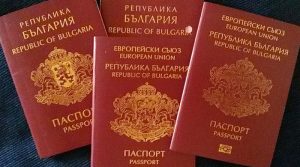Who can travel to Italy right now?

Rome: If you’re wondering what exactly the rules are on travel from your country to Italy right now, here’s an easy way to find out.
Under current Italian government rules valid until January 6th, anyone entering Italy from abroad faces mandatory a 14-day quarantine. Find more details about the rules until January 6th here.
If you’re planning a trip after that date, there are various restrictions to be aware of which depend on the country you are travelling from, and your personal circumstances.
Italy’s travel rules are becoming inceasingly complex, and the fastest and most reliable way to check whether you’ll be able to travel from your country is to use the Italian Foreign Ministry’s interactive questionnaire.
The questionnaire is available in English and is kept up-to-date with full details of the changing Italian government travel rules. Plus here’s an overview of recent rule changes affecting certain countries.
All travellers to Italy from countries within the EU or Schengen zone need to get tested for coronavirus under rules which stay in place until at least January 15th. It’s not yet known what the requirements will be after that date.
EU travellers need to get a test within the 48 hours before departing for Italy, rather than getting tested on arrival as was previously required.
It is currently very difficult to travel to Italy from the UK due to coronavirus restrictions as well as Brexit, as the end of the transition period on December 31st brought an end to free movement for UK nationals.
Added to that is the fact the UK is now classed as a “third country” and so is now also subject to the EU’s coronvirus ban on non-essential travel.
In addition, Italy has restricted flights and entry from Britain due to the rapid spread of a new coronavirus strain.
Entry to Italy is not allowed if you have been in or transited through the UK within the past 14 days, with the exception of those who are legally resident in Italy – whether or not they are Italian citizens – and those with essential reasons for travel, such as for work.
Until January 6th, Italy requires all arrivals from the UK to show a negative test result, taken no more than 48 hours before travel, as well as to undergo a second swab test on arrival in Italy, plus a 14-day period of mandatory quarantine.
There are also far fewer flights than normal operating on UK-Italy routes, with many cancelled following the Italian entry ban,
People travelling from the United States, as well as other countries including India, Russia, and China, remain the same as they have been for months: you can travel for essential reasons or to return home, but not as a tourist. If you are eligible to travel, you’ll have to quarantine for 14 days on arrival in Italy.
Italy in December revised its list of countries outside Europe whose residents are allowed to visit for non-essential reasons, including for tourism. Canada has been removed from the list.
Residents of Canada, as well as New Zealand, Thailand and other countries, must now prove they have an urgent reason such as work, health, study or family emergencies in order to enter Italy.
Citizens of these countries who live in Italy remain free to return to their Italian residence.
Residents of any of these countries are free to visit Italy, but must quarantine for 14 days upon arrival.
Domestic travel will remain restricted throughout early January, the government confirmed on January 5th.
From January 7th-15th travel between towns or regions will be limited to essential journeys only, meaning tourism is not possible.
The rules are due to be updated in the next emergency decree, by January 15th,
Upon arrival, you will have to complete a form (available here or from your airline) giving your contact details and the address in Italy where you plan to quarantine. You will need to organise your own transport from the airport without taking trains, buses, coaches or other public transport to reach your destination.
Once you’re at your place of quarantine, you should not go outside unless there’s an emergency, nor can you invite anyone over or socialise with other housemates (unless you’re quarantining together).
You are also required to inform the local health service, or ASL, so that they can monitor you. Depending on where you are, you should be able to do this by phone, email or by filling in a form online: consult your region’s website for more information.
The quarantine requirement also continues to apply after December 7th to everyone who has stayed or transited through any other country at any point between December 21st and January 6th.
As the Interior Ministry clarified in a circular in December, that means people who left Italy before December 21st or return after January 6th must also quarantine.
In other words, if you return to Italy on or after January 7th having spent part or all of December 21st-January 6th abroad, you will still have to quarantine.
The only exceptions are for people who had to leave Italy for essential reasons, including work, health, study or emergencies.





